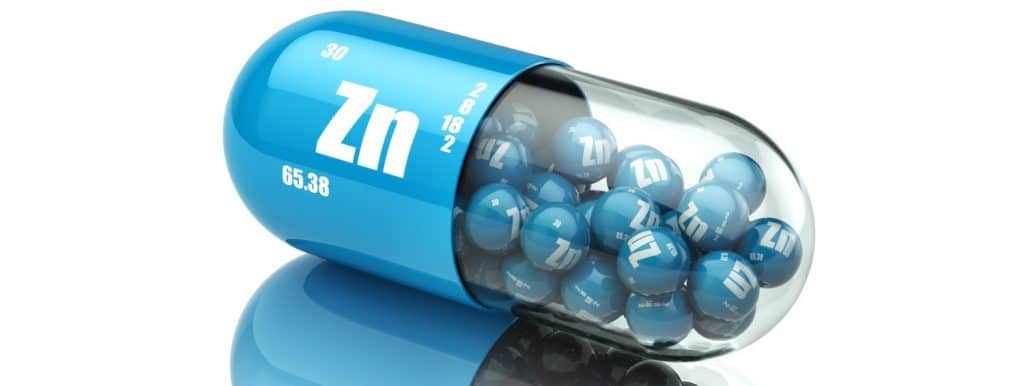
Biological Role
History of Zinc Industry
Zinc sulfate is the most commonly used zinc supplement. This arrangement has the lowest price compared to other forms. But it has minimal absorption and causes stomach upset. Your doctor will usually prescribe 220 mg of zinc sulfate, which contains approximately 55 mg of zinc. The more absorbable forms that are available are zinc picolinate, zinc citrate, zinc acetate, zinc gisrate, and monomitonin.
Different forms of zinc have different amounts of zinc in the composition. In the label of these compounds, always look for the amount of element zinc. Zinc compounds usually contain 30 to 50 mg of zinc. Keep in mind that you are absorbing about 10 to 15 mg of zinc from your daily diet. Your doctor should consider this amount of daily dietary intake when prescribing zinc supplements. Zinc tablets are available in pharmacies and grocery stores and are useful for treating colds. Wheat germ is also a good source of zinc, which is recommended for everyone.
consumption instruction
Consult a dietitian before taking zinc supplements. When you make the most of zinc supplements, take them with water or fruit juices (not milk) between meals and do not take them at the same time as iron and calcium supplements. If it has a problem with your stomach, you can take it with food.
Precautions
Most trace minerals are toxic to the body if consumed in excess, and this is true of zinc. Symptoms of intoxication include upset stomach and vomiting, and usually occur when 2,000 mg or more is consumed. Studies show that up to 150 mg is not dangerous, but it is usually not needed and interferes with the body’s use of other elements. Research shows that consuming less than 50 mg daily is safe, but no information is available on long-term use of this amount of zinc.
Consult your doctor before using zinc or other supplements.
A known negative side effect of zinc is that excessive amounts reduce HDL (good cholesterol) and increase LDL (bad cholesterol). Some research shows that too much zinc reduces immune function, while other studies do not support this view. If zinc sulfate irritates the stomach, take another form of zinc, for example zinc citrate, and consult a doctor beforehand. Other side effects of zinc poisoning include dizziness, headache, drowsiness, increased sweating, muscle dysfunction, alcohol intolerance, hallucinations, and anemia.
Possible interferences
Because zinc interferes with other elements, you can use multivitamins, or ready-made blood elements including zinc, iron and folate. This will help you to balance the elements. Excessive zinc intake can interfere with copper absorption and cause copper deficiency. This affects the amount of iron in the body and can lead to anemia.
Excessive consumption of iron and copper interferes with the absorption of zinc. Zinc interferes with folate uptake. Consult your doctor before taking zinc or any other supplement.
Possible interferences are:
Vitamin B-12 alters melatonin production levels. If your blood melatonin level is low, your B-12 levels are also low. Taking vitamin B-12 (1.5 mg per day of methylcobalamin) can improve sleep disorders, as it increases melatonin production.
Nonsteroidal anti-inflammatory drugs (NSAIDs), such as aspirin and ibuprofen, reduce melatonin production in the body. Therefore, it is better not to use these drugs before going to bed. Beta-blockers also prevent melatonin from rising at night.
Protein, vitamin B-6, niacin amide and acetylcarnitine all contribute to the production of melatonin.
Some antidepressants increase the level of melatonin in the brain. Benzodiazepines, such as Valium and Xanax, inhibit melatonin production.
Alcohol, caffeine, diuretics, and calcium channel blockers inhibit melatonin production.
Daily required amount
Studies show that women need at least 10 mg of this important and essential element daily and men need at least 12 mg daily. It is more common to see that the amount of zinc consumed is much less than the amount required.
The German Dietetic Association (DGE) and the US Food and Drug Administration (RDA) recommend that women take 12 mg daily and men 15 mg daily to prevent zinc deficiency diseases. Of course, the dose and amount of treatment stated by Dr. Verbach is between 20-20 mg per day. Basically, a dose of 15 mg per day is considered the average daily intake.
Therapeutic dose
The therapeutic dose of zinc daily is about 50 mg. Supply of zinc in the form of zinc gluconate compounds is very good and tolerable for the body and with good absorption. Remember that all zinc supplements should be taken with food to prevent nausea. Note that people who have consumed 50 to 300 mg of zinc daily for a long time can suffer from impaired absorption of iron and copper salts and also a deficiency of these two minerals in the body. It has even been shown that people who take 2 grams a day for a long time show symptoms such as vomiting, nausea, abdominal pain and fever. People with liver and intestinal problems should consult their doctor before taking zinc supplements
Zinc and skin diseases
It has been observed that the concentration of zinc in the skin and eyes is higher than in any other organ
